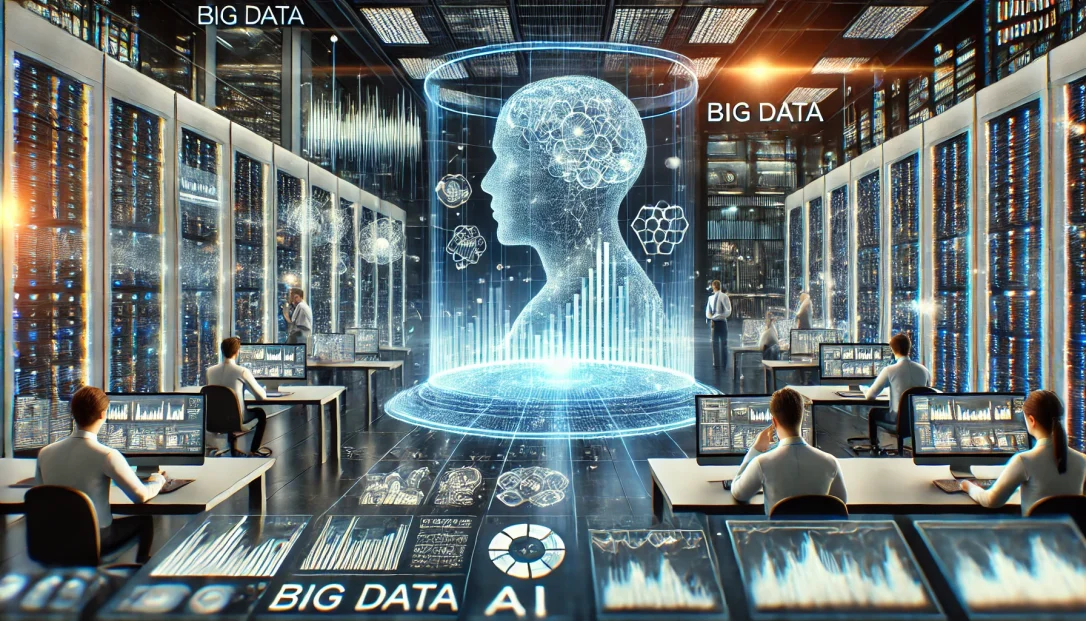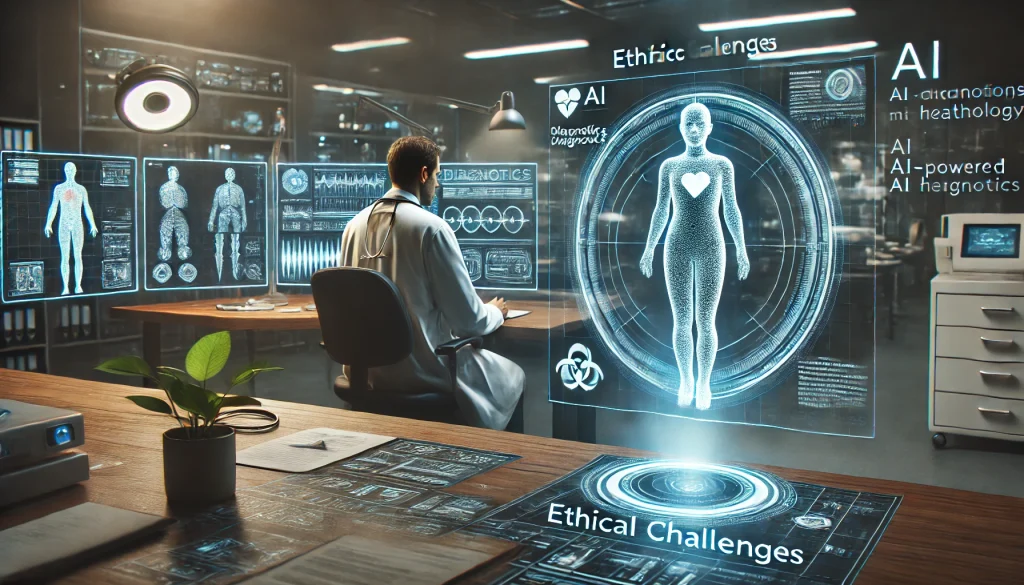Introduction
Artificial Intelligence (AI) and Big Data are two of the most transformative technologies of our time. But did you know they’re deeply interconnected? Big Data serves as the fuel for AI, providing the massive datasets necessary for training and refining intelligent systems. In this post, we’ll explore the critical role Big Data plays in AI, how it enhances machine learning models, and why it’s essential for developing smarter, more accurate AI solutions.
1. What is Big Data?
Before diving into its role in AI, let’s clarify what Big Data is:
- Definition: Big Data refers to extremely large datasets that cannot be processed or analyzed using traditional data processing methods.
- The Three Vs of Big Data:
- Volume: Massive amounts of data generated every second.
- Velocity: The speed at which data is generated and processed.
- Variety: The different types of data, including text, images, videos, and more.
Fun Fact: Every day, we create 2.5 quintillion bytes of data. That’s enough to fill over 10 million Blu-ray discs!
2. How AI Uses Big Data
AI systems, particularly machine learning and deep learning models, thrive on data. The more data you feed them, the better they perform. Here’s how Big Data powers AI:
- Training Models: Machine learning algorithms learn from historical data. Big Data provides the diverse, comprehensive datasets needed to train these models effectively.
- Improving Accuracy: Larger datasets help reduce bias and improve the accuracy of AI predictions.
- Real-Time Processing: With Big Data, AI systems can analyze data in real time, enabling applications like fraud detection and dynamic pricing.
Example: In self-driving cars, AI systems use Big Data from millions of miles of driving footage to learn how to navigate safely.
3. Key Applications of Big Data in AI
The synergy between Big Data and AI drives innovation across multiple industries:
- Healthcare: AI models analyze Big Data from patient records, medical images, and genomic data to diagnose diseases and recommend treatments.
- Finance: AI uses Big Data for fraud detection, credit scoring, and algorithmic trading.
- Retail: Personalized shopping experiences are powered by AI analyzing customer behavior data.
- Marketing: Big Data helps AI optimize ad targeting, predict customer preferences, and improve campaign effectiveness.
- Smart Cities: AI systems process data from sensors and cameras to improve traffic flow, energy use, and public safety.
Impact: Big Data enables AI to create smarter, more efficient systems tailored to specific industries.
4. Challenges of Using Big Data in AI
Despite its advantages, integrating Big Data with AI comes with challenges:
- Data Quality: Poor-quality data can lead to inaccurate AI models. Ensuring data cleanliness and consistency is critical.
- Storage and Processing: Managing and analyzing large datasets requires significant computational resources and infrastructure.
- Privacy Concerns: Handling sensitive data raises ethical issues, requiring stringent data protection measures.
- Bias in Data: If the training data is biased, the AI models will learn and perpetuate those biases.
Takeaway: While Big Data is essential for AI, it’s crucial to address these challenges to ensure reliable and ethical AI systems.
5. The Future of Big Data in AI
As AI continues to evolve, so does the role of Big Data:
- Edge Computing: In the future, data will be processed closer to its source, reducing latency and improving real-time decision-making.
- Synthetic Data: AI can generate synthetic data to supplement real-world datasets, addressing privacy concerns and improving model training.
- Explainable AI: Big Data will help develop AI models that are not only accurate but also interpretable, enabling users to understand how decisions are made.
Future Outlook: Big Data will continue to drive AI advancements, leading to more robust, efficient, and ethical AI solutions.
Conclusion: Why Big Data is the Lifeblood of AI
Big Data and AI are a perfect match. Big Data provides the rich datasets that AI models need to learn, adapt, and make accurate predictions. As we generate more data every day, the potential for AI to transform industries and improve lives continues to grow. Understanding the role of Big Data in AI is key to unlocking its full potential.
In the next chapter, we’ll explore AI Ethics – Balancing Innovation and Responsibility, diving into the ethical considerations of using AI in the real world.







